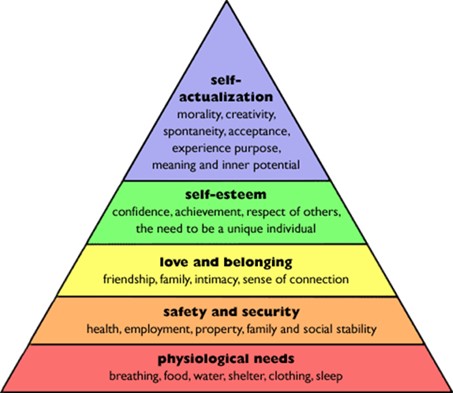Motivation is a person's willingness or enthusiasm to do something — their reasons for acting or behaving in a particular way and willingness to do something. Everything from better pay to social status or even fear can motivate employees in work situations.
Directing, developing and changing people's behaviour is part and parcel of being a leader, and motivation is the main driver. The more motivated your team is, the more capable it is of meeting business goals. Whatever your profession, be it a corporate role or running anything from a gardening business to a pet care company, being a good leader requires an understanding of motivation.
Whether you're a seasoned leader or stepping into a leadership role for the first time, the ability to inspire and energise your team is essential. In this blog post, we’ll explore various strategies on how to motivate your team effectively, ensuring they feel supported, valued, and driven.
Jump to:

Understanding Motivation in Teamwork
Before diving into the strategies, it’s important to grasp what motivation in teamwork really means. Motivation is the force that drives people to fulfil a need. In a team setting, this can range from the personal satisfaction of a job well done to the collective success of achieving a goal. Understanding the different types of motivation is key to applying the right strategies.
Types of Motivation
Extrinsic motivation is when external rewards compel someone. In the workplace, a person may be motivated by compensation such as pay, promotion or better office space. Extrinsic motivation can also come through positive feedback or public recognition.
Intrinsic motivation is when someone is motivated by internal factors. They engage in activities because they are internally rewarding or satisfying. This could mean doing something for fun or because it allows them to challenge themselves.

Abraham Maslow developed his Hierarchy of Needs model in the 1940s to examine people's motivations. Our most basic needs for survival are at the bottom, working up to needs relating to belonging, respect and what he calls 'self-actualisation', or realising our full potential. Once each level of need is met, we look to achieve the next one.
Maslow thought that organisations should offer incentives to their workforce to enable them to fulfil each need and progress up the hierarchy. This model also recognised that not everyone is motivated by the same thing. Self-actualisation is a very personal motivator; therefore, a wide selection of incentives should be offered for full employee engagement.
Maslow's model has become widely used by workplace leaders and human resources staff. They can translate the pyramid into work-based issues such as healthy working conditions, non-threatening environments, job security, opportunities for promotion, and creative freedom.
How Do Leaders Motivate Their Team?
Leaders play a key role in setting the tone for motivation. They can inspire their team by setting clear goals, providing support and resources, and recognising achievements. Effective leaders know how to motivate a team as a leader by being role models, demonstrating commitment, and communicating openly. Here are nine simple ways you can motivate your team:
1. Set Clear Goals
One of the first steps in motivating your team is to set clear, achievable goals. This provides direction and a sense of purpose. When setting these goals, involve your team in the process. This inclusion fosters a sense of ownership and commitment towards achieving these objectives.
2. Recognise and Reward Achievements
Recognition is a powerful motivator. Acknowledging individual and team achievements, no matter how small, boosts morale and encourages continued effort. Celebrating successes can be as simple as a thank-you note or as elaborate as an awards ceremony. The key is to make the recognition timely and sincere.
3. Communicate Effectively
Open and honest communication builds trust and ensures that everyone is on the same page. Regular team meetings and one-on-one check-ins can help address any concerns, provide feedback, and adjust goals as needed. Effective communication also involves listening to your team’s ideas and feedback, which can lead to innovative solutions and stronger commitment.
4. Provide Support and Resources
Support your team by providing the necessary resources and training to achieve their goals. This could mean offering training sessions, workshops, or access to online courses that develop their skills. When team members feel supported and know that growth opportunities are available, their motivation to contribute effectively increases.
5. Empower Your Team
Empowerment is a powerful motivator. By delegating responsibilities and giving your team autonomy in their tasks, you convey trust in their abilities. This can boost their confidence and encourage them to take ownership of their work.
6. Create a Positive Work Environment
The work environment plays an important role in team motivation. A positive, inclusive, and supportive environment encourages collaboration and creativity. Celebrate diversity and ensure that all team members feel valued and included.
7. Foster Professional Growth
Encourage your team to pursue professional growth opportunities. Whether it’s attending a seminar, participating in a workshop, or taking an online course, professional development can be a significant motivator. It demonstrates your investment in their future and can inspire them to contribute more effectively to the team.
8. Address Challenges Together
Every team faces challenges, but how these challenges are addressed can either motivate or demotivate your team. By adopting a problem-solving attitude and involving the team in finding solutions, you can turn challenges into opportunities for growth and learning.
9. Encourage Work-Life Balance
Recognise the importance of work-life balance in keeping your team motivated. Encourage your team to take time off when needed and respect their time outside of work. A well-rested and well-balanced team is more productive and motivated.

How Do You Motivate an Unmotivated Team?
Motivating an unmotivated team requires identifying the root causes of their lack of motivation. It could be due to unclear goals, lack of recognition, or feeling undervalued. Once these issues are identified, address them directly. Re-evaluate goals, offer more support, and ensure that achievements are recognised. Sometimes, simply showing genuine concern and interest in your team members' well-being can reignite their motivation.
Addressing Underperformance
Motivating underperforming team members requires a careful approach. Begin with understanding their perspective and challenges. Offer constructive feedback, set clear expectations, and provide the necessary support to help them improve. Recognising small improvements can motivate them to continue progressing.
How Do You Motivate Difficult Employees?
Motivating difficult employees starts with understanding their perspectives and challenges. Engage them in open dialogue, set clear expectations, and offer support. Sometimes, a fresh challenge or a change in responsibilities can reignite their motivation.
Common Questions About Motivating a Team
How Can I Quickly Assess My Team’s Motivation Levels?
Quickly assessing your team's motivation levels can be done through direct communication and observation. Ask for their input on current projects and listen to any concerns they may have. Also, pay attention to changes in productivity levels and engagement in meetings. These can be indicators of their motivation levels.
What Are Some Quick Wins to Boost Team Morale?
Quick wins to boost team morale include spontaneous recognition of hard work, small team celebrations for completed milestones, or personal acknowledgements in team meetings. These actions can quickly elevate the team's spirit and motivation.
How Do I Handle a Team Member Who Is Resistant to Motivational Efforts?
Handling a team member resistant to motivational efforts requires a tailored approach. Try to understand the root cause of their resistance through one-on-one conversations. Sometimes, offering specific support or adjusting their role to better align with their interests and strengths can make a significant difference.
Can External Motivators Like Incentives Always Improve Motivation?
While external motivators like incentives can boost motivation in the short term, they're not always a sustainable solution for long-term engagement. Fostering intrinsic motivation by aligning tasks with team members' interests and values tends to have a more lasting impact.
How Do I Ensure That Motivational Strategies Are Inclusive?
Ensuring that motivational strategies are inclusive involves understanding the diverse needs and preferences of your team members. Tailor your approach by considering different cultural backgrounds, personal values, and working styles. Regular feedback sessions can help you adjust your strategies to be more inclusive.
What Role Does Feedback Play in Motivation?
Feedback plays a crucial role in motivation. Constructive feedback helps team members understand their performance and areas for improvement, while positive feedback reinforces good practices and achievements. Regular, honest feedback can drive motivation by making team members feel valued and understood.
How Can I Motivate My Team Without Increasing Their Workload?
Motivating your team without increasing their workload involves focusing on quality rather than quantity. Recognise their efforts, provide opportunities for learning and development, and encourage efficient working practices that allow for a better work-life balance.
What’s the Best Way to Maintain Motivation in a Remote Team?
Maintaining motivation in a remote team requires extra effort in communication and creating a sense of community. Regular virtual check-ins, creating spaces for informal chats, and recognising achievements in a way that feels personal and meaningful can help keep remote teams motivated.
How Do I Motivate My Team During Times of Change or Uncertainty?
During times of change or uncertainty, clear communication becomes even more important. Be transparent about what’s happening, provide reassurance, and focus on what can be controlled. Empowering your team to contribute to solutions can also help maintain motivation.
Elevate Your Leadership Skills with Centre of Excellence
Unlock the secrets to effective team leadership with our Team Leadership and Motivation Diploma Course, designed to enhance your ability to inspire and motivate your team to achieve unprecedented success.
Why Centre of Excellence?
- Inclusivity: We believe education is a right, not a privilege. Our competitive pricing ensures that our courses are accessible to everyone, embodying our mission of inclusivity.
- Flexibility That Fits Your Life: Our courses are crafted to adapt to your schedule, offering the freedom to learn at your own pace. This means you can seamlessly integrate your learning journey into your daily life without compromise.
- Learning Opportunities: Our extensive range of topics delves into the nuances of team leadership and motivation, catering to a variety of interests and developmental needs.
- Dedicated Support System: Enrolment grants you access to one-on-one tutor support and an engaging community of learners. This support network is designed to guide you through your educational journey, ensuring you're supported every step of the way.
Exclusive Offer
We are excited to offer our Team Leadership and Motivation Diploma Course at a special discounted rate of £29, saving you over £100!
Or if you’d like to learn more about HR, our Human Resources Diploma Course is currently available for just £29 for a limited time (reduced from £147).





